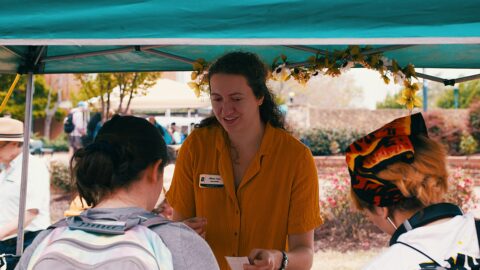In the final part of our “Embedding a Volunteer Culture” blog series, Lynn Blackadder explores what it means for an organisation to be ‘volunteer led’.
Is being ‘volunteer led’ essential to a pro volunteering culture? What do we mean by ‘volunteer led’?
Most charities are quite literally volunteer led, since responsibility lies with the Board of Trustees, which is usually unpaid.
But does it mean something more, such as being wholly volunteer run, or acknowledging the low staff/high volunteer ratio, or volunteers being involved in setting vision, strategy, policy and how volunteers are engaged – perhaps as representatives of the charity’s beneficiary group or customer base?
Given the importance of a ‘one team’ approach to a pro volunteering culture, how do staff feel about being part of an organisation that is ‘volunteer’ led? Moreover, how do volunteers feel about that? In the same way that it might not be useful to talk about volunteer ‘programmes’, it marks out volunteers as being different/separate. Lots of grass root community activity is volunteer led and can be a good thing, but in an organisation that employs both paid and unpaid staff, should we be talking about it being volunteer led?
Several volunteers I have worked with have expressed anxiety at the prominence of volunteers in their organisations, concerned that staff will feel disempowered. This is sometimes married with feelings that volunteers shouldn’t have a say about strategic issues – that being outside of their proper domain and, very often, their interest. And staff can feel left out when there is a focus on volunteering development – ‘what about us?’.
I’ve worked in organisations where induction, reward and recognition is better for volunteers than it is for staff. Volunteers can also be treated differently to staff, manifested in double standards – inappropriate volunteer behaviour is not dealt with for fear of upsetting a much needed team – risking the credibility of staff. We do need to make volunteers feel valued – Volunteers’ Week is a great initiative as is giving thanks/feedback regularly – but if volunteers genuinely get value from their involvement and are thanked for that, is there also a need to mark them out as particularly special (more special than staff) because they give their time for free?
Still, given that most charities have more unpaid than paid staff, it of course makes sense that volunteers have a strong voice, or at least the opportunity should be there for those who want it. Having Trustees who understand and champion volunteering is also vital – don’t assume that Trustees, as volunteers themselves, will understand volunteering. In terms of voice, there is often a gap between that senior body of volunteers and those in other roles – very often few opportunities to drive/contribute strategically, or playing key roles.
Senior managers and other staff often pay lip service to volunteering, not understanding it and its power. This ignorance can lead to suspicion of volunteer motivations (often related to job security), and misconceptions around a lack of professionalism and reliability can lead to a lack of trust and reluctance to relinquish control.
Volunteering has never had such a high profile, but some organisations still state that volunteers can’t do the same jobs as paid workers, though in practise this is rarely the case. It is difficult to see how gardeners, researchers and retail volunteers aren’t doing the same job as their paid counterparts.
Perhaps it’s something to do with paid staff taking overall responsibility for the organisation and quality of the work, but this attitude, coupled with a lack of understanding of why people volunteer, also leads to missed opportunities to ask volunteers to do things that some consider inappropriate in other ways. As Canal & River Trust colleagues will testify, whilst engineers and surveyors are keen to share their skills and time, some of us actually do just want to pick up litter or scrub graffiti off bridges.
People will still volunteer, even if the volunteering culture isn’t great, because they are passionate and committed. But in these changing times of increased competition for people’s free time that probably won’t last for long.
This guest blog is by Lynn Blackadder, a coach and consultant with 22 years’ experience of helping organisations involve volunteers. Lynn blogs in a personal capacity.
You can find Lynn on Twitter: @lynnblackadder




